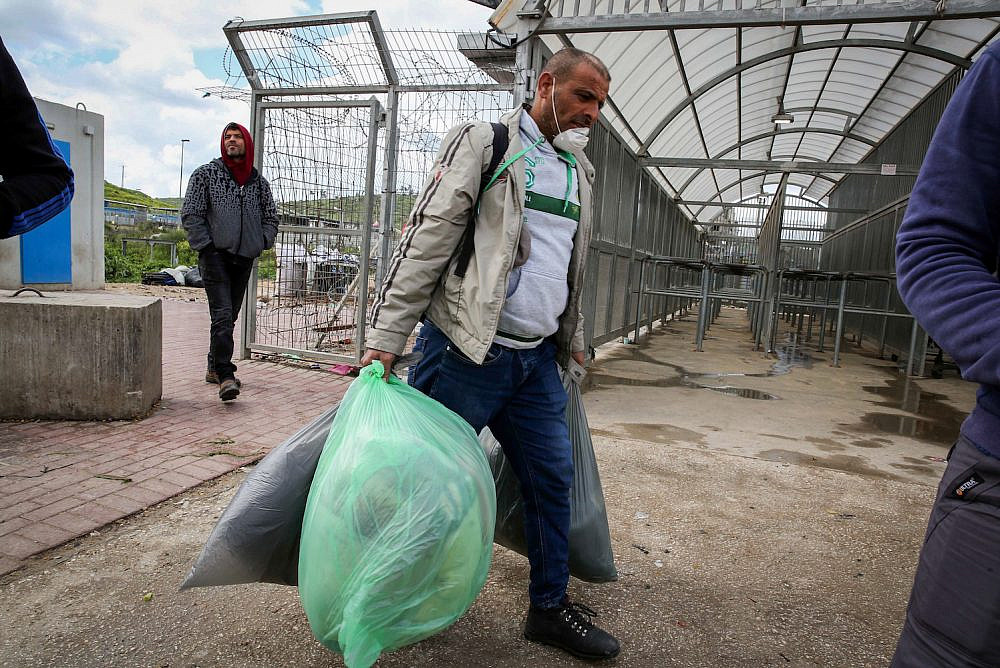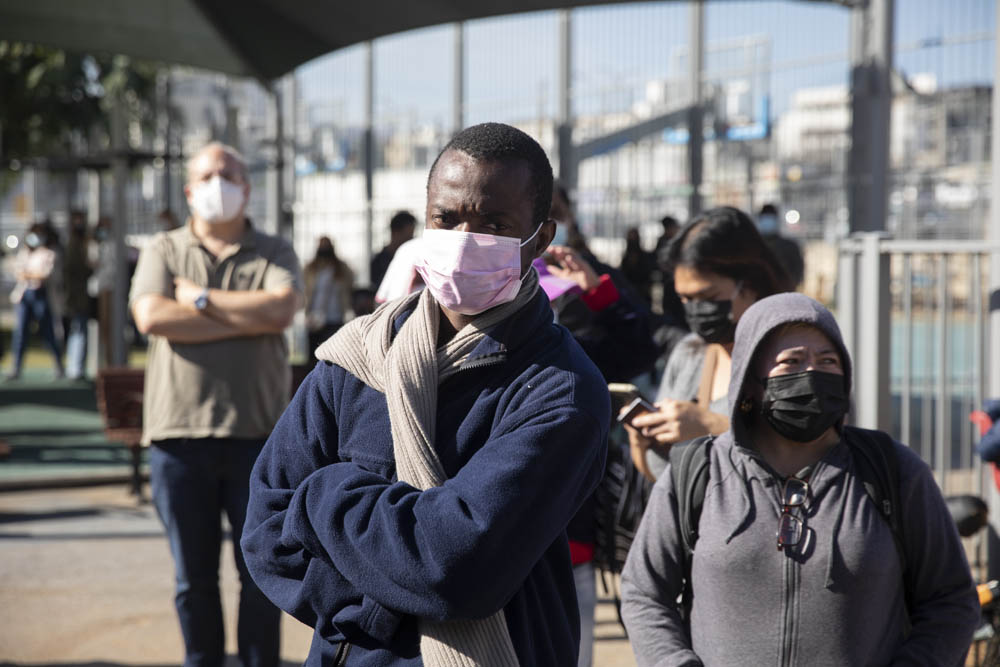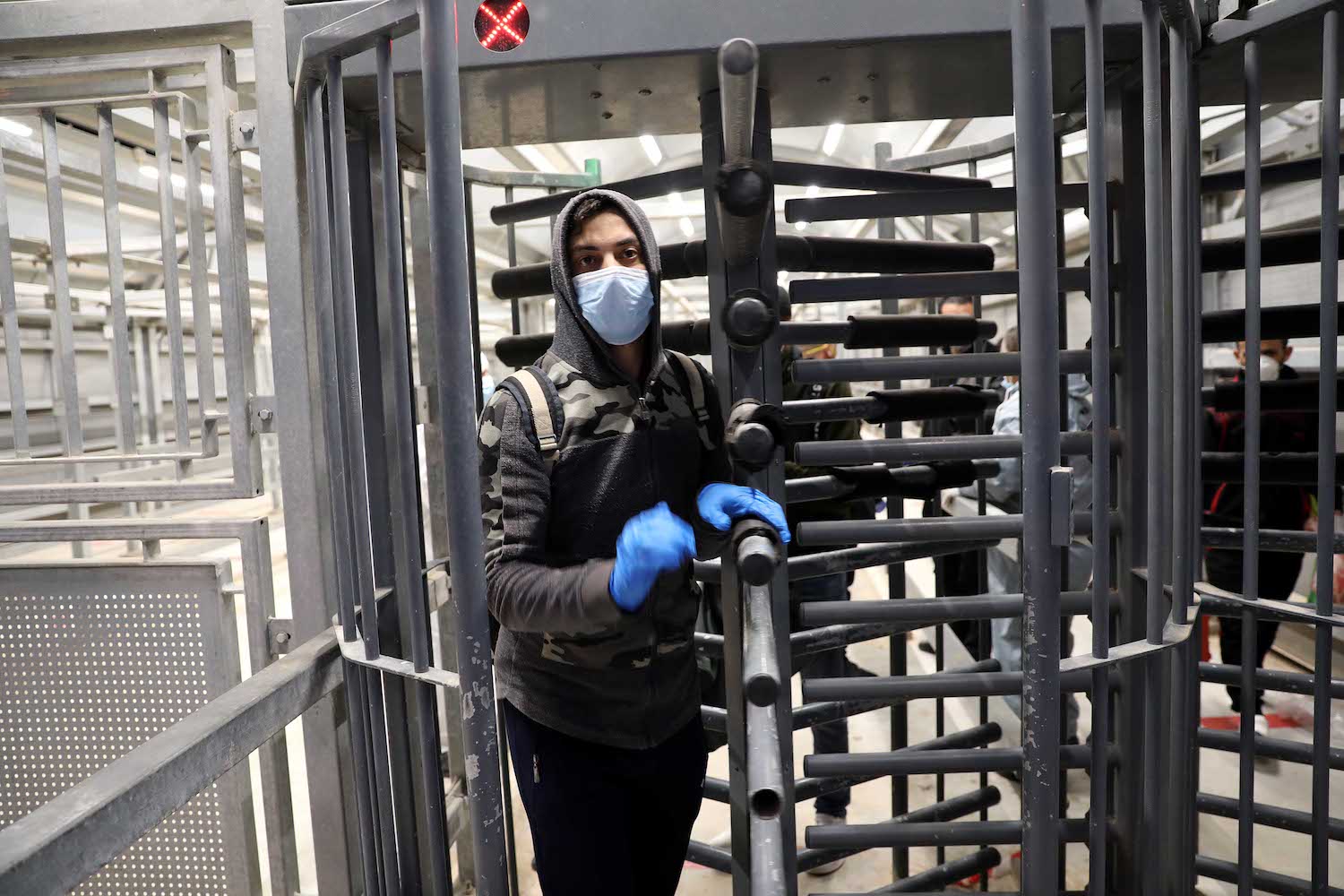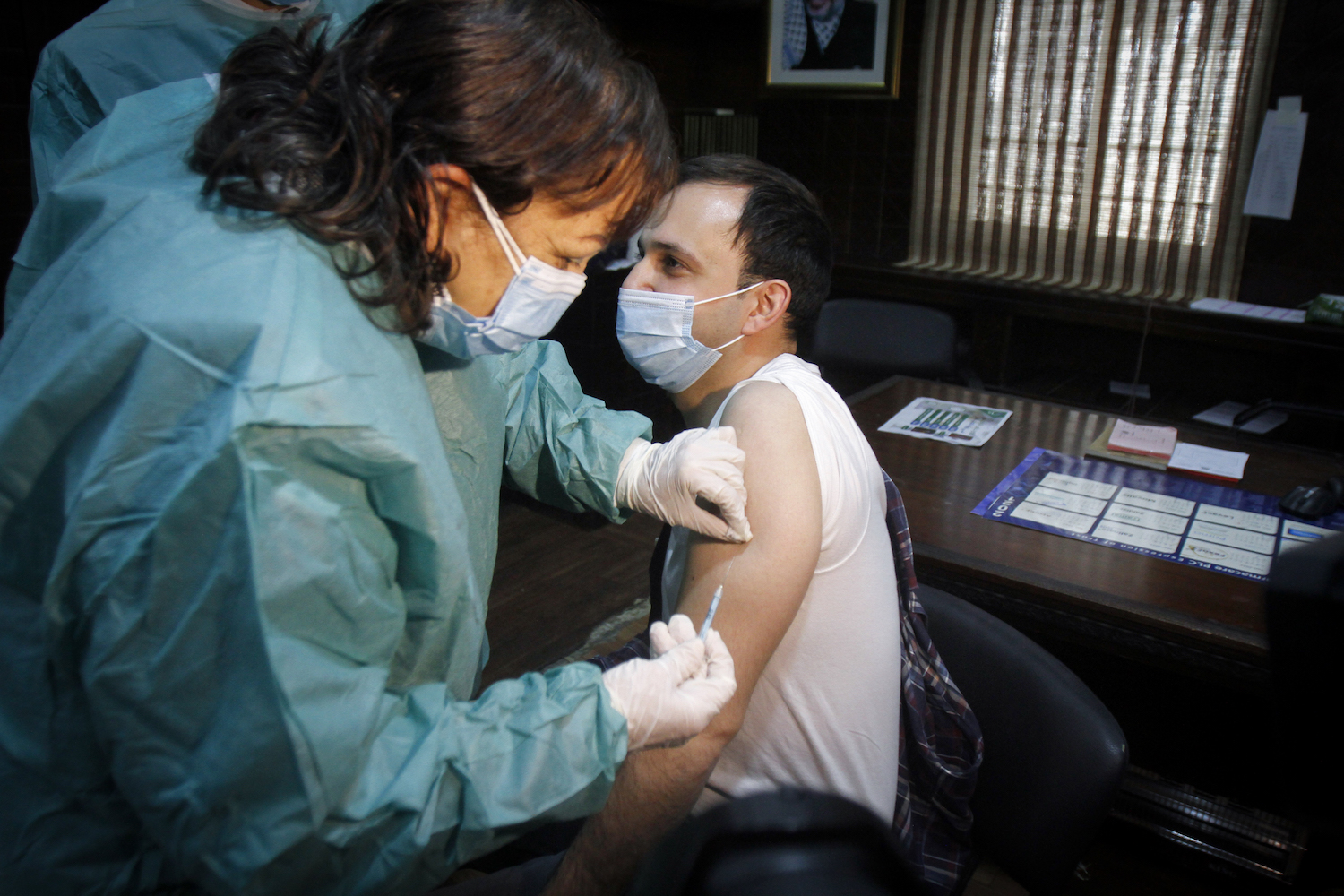A Brief Colonial History Of Ceylon(SriLanka)
Sri Lanka: One Island Two Nations
A Brief Colonial History Of Ceylon(SriLanka)
Sri Lanka: One Island Two Nations
(Full Story)
Search This Blog
Back to 500BC.
==========================
Thiranjala Weerasinghe sj.- One Island Two Nations
?????????????????????????????????????????????????Saturday, February 20, 2021
Israel approves COVID vaccines for undocumented persons, but not for Palestinians
Health Ministry bars thousands of West Bank Palestinians living in Israel from getting vaccinated at makeshift COVID clinics around the country.
 |
Palestinian workers from the West Bank city of Hebron carry personal belongings as they arrive to cross to Israel at a checkpoint in Tarqumiya, March 18, 2020. Photo by Wisam Hashlamoun/Flash90
By Oren ZivFebruary 18, 2021
When Tel Aviv’s municipality opened a COVID-19 vaccine center last week for asylum seekers, migrant workers, and status-less communities in the city’s old Central Bus Station, hundreds immediately stood in line for hours. Local and international media reported on the opening of the center, noting that Israel is one of the first countries to provide vaccines to its undocumented residents, including African refugees and Thai migrant workers.
Among those standing in line was P., a Palestinian from the occupied West Bank who has lived in Tel Aviv for the past two decades. “I am a refugee, it is dangerous for me there,” he said, without elaborating on the circumstances that forced him to leave his home. But as soon as it was P.’s turn to get vaccinated, it became clear that Palestinians from the occupied territories, even those who were forced to flee the West Bank for their own safety, would be refused. Nearby, a Palestinian worker with an Israeli work permit was also turned away.
Both of them were rejected after Israel’s Health Ministry decided this month that Palestinians from the West Bank who live or work in Israel — whether legally or illegally — will not receive vaccinations in Israel’s makeshift health clinics.
According to a statement published by the Health Ministry on Feb. 10, health clinics can provide COVID-19 vaccines to status-less individuals with documentation proving they have been in Israel for the past six months, as well as any undocumented person over the age of 50, regardless of how long they have been in the country. The statement simultaneously bars Palestinian workers or those illegally residing in Israel from receiving vaccinations.
 |
Asylum seekers and migrant workers line up at a makeshift COVID-19 vaccination clinic in south Tel Aviv. (Oren Ziv)
On Thursday, Feb. 18, following pressure from human rights groups, the Health Ministry issued a statement that Palestinians with work permits will be able to receive the Moderna COVID-19 vaccine, although it remains unclear who will be in charge of administering them or when the vaccinations will begin.
“These vaccines are intended for the undocumented person whose center of life is in Israel and cannot be vaccinated at HMOs because they are uninsured,” said Zoe Gutzeit, the director of the Open Clinic at Physicians for Human Rights-Israel. “The refusal to vaccinate undocumented Palestinians stems solely from the fact that they are Palestinian. There is no other way to explain this. Hostility to Palestinians outweighs public health considerations.”
‘To vaccinate the population, you have to give it to everyone’
This provision seems to apply beyond the municipal boundaries of Tel Aviv. In Haifa, medical students received a message from the Health Ministry to help locate and provide vaccinations to undocumented persons at a clinic opened in Beit Hagefen, the city’s Jewish-Arab cultural center. However, the statement said that “the Ministry of Health has emphasized that Palestinians will not be accepted.”
The clinic in south Tel Aviv is operated by the municipality in cooperation with Tel Aviv Sourasky Medical Center. The clinic in Haifa is operated by the Haifa Municipality in cooperation with the “V’Ahavta” clinic, which treats undocumented individuals. However, both clinics are subject to the Health Ministry’s directives.
A medical student who received the ministry’s message about the clinic in Haifa, and who asked to remain anonymous, said that the order not to vaccinate Palestinians was “not surprising but shocking. Everyone I spoke to at school felt this way.”
The student, who is a Palestinian citizen of Israel, said the message was sent by doctors at the institution where he studies. “At a time when Israel is boasting of an advanced health care system, this kind of behavior is archaic,” he said. “It treats the right to health as a reward or as a means of punishment and not as a basic right for every human being.”
 |
Palestinian workers enter Israel through the Metar checkpoint in the West Bank city of Hebron, May 3, 2020. (Wisam Hashlamoun/Flash90)
The student stressed that his criticism is directed toward the Health Ministry rather than the clinics and centers that actually provide the vaccines. “At the medical level, no one disagrees that [Palestinians] should be given vaccines,” he added. “If you want to vaccinate the population, you have to give it to everyone. They live here, so the state is morally responsible for them.”
“Legally, there is a question about people who are not citizens,” he continued. “But once vaccinations are given to undocumented people, and Palestinians are denied those vaccines because they are Palestinian — this is reminiscent of dark eras in history. I could not fall asleep at night because of this. I am shocked that I will have to work in hospitals that will not provide treatment to people to whom I, as a Palestinian, have an affinity.”
The student further criticized the physicians who delivered the message uncritically. “They should put out a statement against such a policy. There is a moral obligation not to stand aside when the criterion is not medical but purely political. They should stand against this without hesitation and raise their voices in support of justice.”
Who is affected?
The Health Ministry’s directive affects a number of groups of status-less West Bank Palestinians who permanently live in Israel. One group, which numbers around 8,000, are Palestinians from the occupied territories who are living in Israel after marrying Israeli citizens, but cannot receive citizenship or residency due to the 2003 Citizenship Law.
 |
Palestinian workers wait for transportation after crossing from the West Bank to work in Israel at a checkpoint near Ramallah, June 4, 2013. (Yonatan Sindel/Flash90)
“They have family reunification permits that allow them to live here legally, but they have no rights,” explains Gutzeit from PHR-I. She notes that following a petition filed by her organization, Palestinians from the occupied territories who have married Israeli citizens now have access to state-sponsored health insurance, but there are still those who have been unable to obtain insurance for various reasons. Gurzeit estimates that around 2,000 of them are uninsured and therefore cannot be vaccinated.
A second group consists of Palestinians who fled areas under the control of the Palestinian Authority after being suspected of collaborating with Israel. Some have received recognition from the Israeli authorities and have a permit that allows them to live in Israel, but are still denied access to health insurance. It is estimated that there are other “threatened” Palestinians who have fled the West Bank for Israel who have not received official approval.
The third group are Palestinian asylum seekers who fled the West Bank for other reasons, such as their sexual or gender identity. “Some of them have received a special permit [to remain in Israel], while others have not,” says Gutzeit. “Some of them are known to [Israel’s] welfare institutions or have sought shelter in LGBTQ institutions. They are young people who have escaped abuse or harassment.”
The largest group are Palestinians from the West Bank who entered Israel to work and have remained in the country after their work permit has expired. It is estimated that tens of thousands of undocumented Palestinians return to their homes in the West Bank every two weeks before coming back to Israel.
According to Kav LaOved – Workers Hotline, approximately 70,000 Palestinians from the occupied territories currently work in Israel. With the beginning of the pandemic last year, the Israeli government reversed its policy and granted permission to thousands of Palestinian workers to stay in Israel in order to reduce the risk of COVID-19 infection inside Israel and the West Bank.
 |
Palestinian health workers in the West Bank city of Nablus are vaccinated against COVID-19 after a limited number of doses were transferred from Israel, February 3, 2021. (Nasser Ishtayeh/Flash90)
Human rights groups have demanded that the Israeli government vaccinate all Palestinians under its control, including in the West Bank and Gaza Strip. This demand is especially pertinent for Palestinians living in Areas B and C of the West Bank, who are under the direct control of Israel.
So far, Israel has transferred only a few thousand vaccines to the West Bank intended for medical workers. Only 1,000 Russian Sputnik V vaccines, which were sent by the Palestinian Authority, were finally transferred to Gaza on Wednesday after Israel had blocked their entrance into the strip earlier this week. A shipment of 20,000 more Sputnik V doses are set to be transferred to Gaza by the UAE.
According to the Israeli Health Ministry, its latest vaccination campaign is intended for status-less individuals and not “those who have valid permits, such as Palestinians living in Israel. Those are divided into two groups: insured — who are vaccinated at HMOs, and [Palestinians] with entry permits — who are subject to a National Security Council committee that oversees vaccinations for those with permits [entering from] the Palestinian Authority into Israel.”

